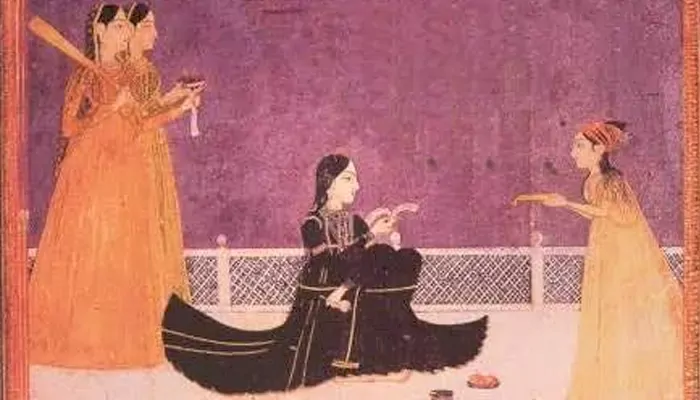
Before feminism had a hashtag, she lived it boldly in the Mughal court.
Long before women’s rights became a movement, before gender equality echoed in parliaments, and centuries before hashtags ruled social revolutions — there lived a woman who dared to speak her mind even being associated with one of the most powerful empires in history.
She was a poet, a philosopher, a court intellectual, and arguably, India’s earliest feminist voice — all while living inside the patriarchal walls of the Mughal court.
Meet Princess Zeb-un-Nissa!
She wasn't a typical royal damsel sipping sherbet in marble courtyards. She was a rebel in rhyme, a thinker in silk, and a revolutionary wrapped in royal grace!
Born in 1638, Zeb-un-Nissa was the eldest daughter of Emperor Aurangzeb. Yes, you read it right. She was the daughter of a strict and conservative Mughal ruler. But Zeb-un-Nissa embraced poetry, Sufism, and progressive thought.

While other royal women were confined to the zenana (harem), Zeb-un-Nissa studied philosophy, astronomy, theology, Persian, and Arabic. By the age of 14, she had already memorised the Quran and mastered the art of writing powerful Persian ghazals.
Under the pen name “Makhfi” (meaning the hidden one), she wrote verses that critiqued power, challenged patriarchy, and talked about freedom—both spiritual and personal.
The royal lineage gave her easy access to libraries and scholars, consequently, she turned her sharp intellect into poetic fire, writing about love, liberty, loss, and longing—but her writings always had a bold undertone of resistance.
In one of her famous verses, she wrote:
“I am the burning fire in a darkened sky.
Not just a moon to shine and die.”
Even under the watchful eye of her priggish father, she found several ways to hide meaning within metaphors, crafting verses that spoke about the inner rebellion of women.
Many historians feel that her writings wasn’t just art — it was coded activism.
Zeb-un-Nissa’s life took a tragic turn suddenly, and some historians suggest the reasons being progressive thinking, support for Sufism, and closeness to political rivals. All those factors combinedly displeased her father. Others say her poetry and bold presence simply became too radical for the throne’s comfort.
She was eventually imprisoned by her own father, allegedly spending the last 20 years of her life confined in a fortress near Delhi.
Her crime? Being too free-spirited, too curious, and far too intelligent.
And just like that, one of India’s most powerful voices was silenced — but not erased.
Zeb-un-Nissa belonged to that era where women’s voices were barely heard. Despite that, she roared in verse, defied expectations, rejected societal rigid norms, and lived a life dictated by thought—not tradition.
Zeb-un-Nissa’s poetry continues to be studied, translated, and admired today. Scholars and readers across the globe find resonance in her emotional depth, intellectual courage, and quiet defiance.

(Zeb-un-Nissa Tomb)
So, why do history books don't talk about her enough? Partly because mainstream history often overlooks women, especially those who didn’t fit the “ideal obedient princess” narrative. Partly because her life was shrouded in secrecy, her poems scattered and her story often suppressed.
Amidst the chaos, let's celebrate the woman who was bold, brilliant, and unapologetically different. Zeb-un-Nissa didn’t need a crown to make history. She left behind something far more powerful: a body of work that continues to inspire, ignite, and challenge us.
Beyond a Mughal princess, she was a trailblazer, a truth-teller, and a woman who lived a century ahead of her time.